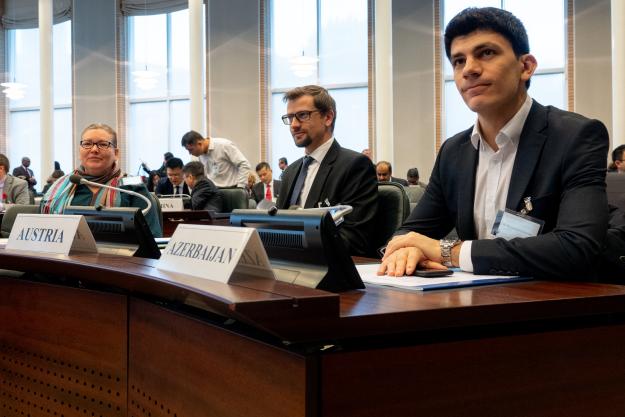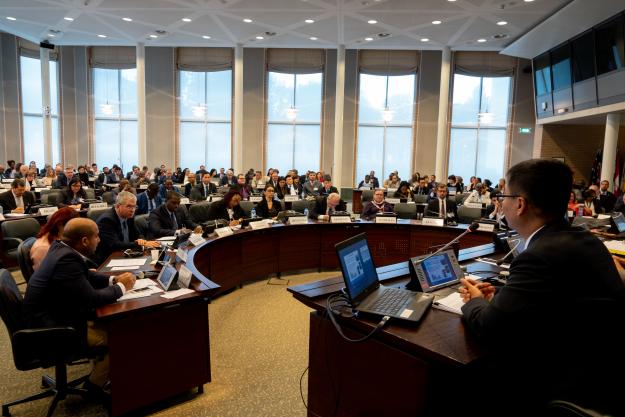
THE HAGUE, Netherlands –7 November 2019– National Authorities (NAs) from 110 Member States of the Organisation for the Prohibition of Chemical Weapons (OPCW) met to discuss the implementation of the Chemical Weapons Convention (CWC) at the Twenty-First Annual Meeting of National Authorities held in The Hague from 5-7 November.
The OPCW Deputy Director-General, H.E. Ms Odette Melono, highlighted in her opening remarks the crucial role of the National Authorities and the necessity to build and maintain strong engagement and partnerships with all stakeholders: “Building relationships of trust and strengthening networks with relevant stakeholders at the national level is vital” and further added: “I encourage national Authorities to continue their efforts to engage with chemical industry, customs authorities, the scientific community, and other government agencies.
The meeting also provided more than 160 attendees with an opportunity to review the impact of the OPCW’s implementation support and capacity building activities. They were also briefed on recent developments under Articles VI, VII, X and XI of the Convention, At break-out sessions, National Authorities representatives from the five regional groups had the opportunity to meet their counterparts discussing and identified the needs and mechanisms which address their current and future challenges. National experiences and good practices related to national CWC implementation were shared with the larger group, with a focus on knowledge management of capacity building support, stakeholder engagement and outreach.
In addition to sharing good practices, National Authorities also held bilateral consultations with OPCW officials about the ongoing challenges to CWC implementation and optimal ways of overcoming them.
More photos of the Twenty-First Annual Meeting of National Authorities available here.

Background
As the implementing body for the Chemical Weapons Convention, the OPCW, with its 193 Member States, oversees the global endeavour to permanently eliminate chemical weapons. Since the Convention’s entry into force in 1997, it is the most successful disarmament treaty eliminating an entire class of weapons of mass destruction.
Over 97% of all chemical weapon stockpiles declared by possessor States have been destroyed under OPCW verification. For its extensive efforts in eliminating chemical weapons, the OPCW received the 2013 Nobel Peace Prize.
More Information
